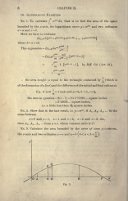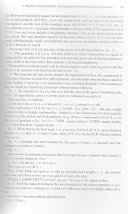Seeing Mark's blog
over the weekend promoting corporate ownership aggregation reminded me of an overdue
response to Project
Harmony. Mark writes compellingly, as normal, I'm just not so convinced about
the moral excellence of generosity, without sensible safeguards, towards profit
chasing corporations. But anyhow, Project Harmony:
Having initially been involved with the project, I'm rather disappointed
by its output. There are many applications
of Harmony that are problematic legally, pragmatically, ethically and from
a software freedom perspective. I've written about the practise of to-corporate
Copyright
Assignment though that title would better be expanded to certain licenses, such
as Harmony's, which are tantamount to (C) assignment enabling an unhelpful corporate
ownership aggregation. Others writing in detail on this are Bradley Kuhn, Richard Fontana, Dave Neary and Simon Phipps.
My two cents is that, best practise is the Free Software norm, where the
inbound contributor agreement (CA) is identical to the outbound license.
There is some extent to which Harmony does improve things - it is rather like a
hypothetical ISO standard for weapons sales. Such a standard, with clear escrow
provisions perhaps, might help accelerate arms sales, making them cheaper, and
perhaps may have a legitimate use: helping some defend themselves and others under
threat. The only slight down-side being the scope for littering the world with
yet more unwanted land-mines. In the same way I fear that Harmony has the
potential to make acceptable the corporate control Free Software projects,
bringing many complications. There are many rather good reasons not to
sign a CLA, often focued on the horrible imbalance of power that they create.
Here is one such specimen reason focused on the corporate sphere:
Why Harmony's CLA can be dangerous
Broken options - the one way street
Consider a BSD licensed Harmony option. The BSD license gives no out-bound
patent rights to the software, so it is easy to end up with code that requires
a separate patent license to effectively use it. Now - consider that you have
assigned your patent rights under a Harmony CLA to FooCorp, you assign:
"For patent claims ... which You own, control or have the right to grant,
now or in the future, You grant to Us [FooCorp] a perpetual,
worldwide, non-exclusive, transferable, royalty-free, irrevocable patent
license with the right to sublicense these rights to ..."
By signing this - you have comprehensively given away your patent rights, to
the code you contributed to FooCorp, but interestingly, you get no license
granted back, either by the outbound BSD license or by the Harmony agreement.
That is deeply generous but
highly broken. It is thus easy to create a situation, where only
FooCorp, and its for-fee licensees can use the project's code.
No self defence provisions
Another problematic down-side follows from this. If there is any ethical
justification for acquiring patents it is self defence (from the madness of
the real world). More sane non-copy-left
outbound licenses have reciprocity clauses to enable self defense against
patent aggression. Lets look at Apache's:
3. ... each Contributor hereby grants to You a perpetual, worldwide ...
irrevocable (except as stated in this section) patent license ...
If You institute patent litigation against any entity (including a
cross-claim or counterclaim in a lawsuit) ... then any patent licenses
granted to You under this License for that Work shall terminate as of
the date such litigation is filed.
Which means - if MegaCorp sues me for patent infringement, while they
are using my own patented code: I get to use that patent to defend myself.
So how does that jive with the Harmony CLA ? Sadly, none of that nice termination
logic is there - you just gave away your current and future patent rights
completely. Pathologically in the previous (BSD outbound) case; quite feasibly
FooCorp can immediately threaten you for patent infringement on their work.
Add some simple corporate mechanics such as making FooCorp a shell
company, even with an Apache licensed project FooCorp's parent can sue you for
using their code.
Third parties get to tread on you
That situation can be seen in a different way. Say you are defending yourselves
in some patent war cf. the mobile space. Perhaps your major defensive tool is a
patent covered by code you've included into FooCorp's product. Unfortunately,
whatever the outbound license used (perhaps it has a sensible termination
provision) the patent license comes, not from you, but from FooCorp. Of
course perhaps you only discover when it comes to defending yourself that
FooCorp already sold your code + patent rights to MegaCorp under a
confidential proprietary license some years back; better hope you
keep them sweet by not competing with them.
A FUD factory - who knows what you're missing ?
Thus FooCorp is sitting pretty, on its pile of aggregated patent and copy
rights, and has a great marketing tool to sell their proprietary licenses
to other companies: "better safe than sorry" - "who knows what key
rights you might be missing; we don't ?" - "sign here for safety".
Similarly other (big) companies are incentivised to only appear to work
inside the community, limiting their exposure by taking bespoke,
non-reciprocal, proprietary licenses. That can make project contributors
feel safe - "MegaCorp is distributing OpenBaa under the LGPL
too right ?" when in fact they have a neat way of avoiding giving
you key rights, via paying FooCorp.
I initially tried to encourage the Harmony project to address this
sort of issue, but without success.
The net effect - more complexity on top of the license
One of the aims of Project Harmony is to make review easier for
lawyers, yet it conceals this non-reciprocal loose your job
minefield. By parameterising 'license', and including the scope for
future license change it provides a very clear definition of the
rights you surrender now and in the future, and a very vague
aspiration to the rights you get back. Thus, you cannot read the
Harmony CLA without also paying very careful attention to
its interaction with the selected outbound license as well.
So - I am fairly convinced that large companies will not be signing
such an 'Entity agreement'. If they need to contribute there are plenty
of ways to look like they are doing that, eg. via a shell entity, or by
letting employees contribute as individuals.
Where is a CLA useful ?
Some projects are not blessed with a copy-left license. That means
that every time they see a patch floating across their mailing list, the
ownership of it can be less than clear; after all, it is fine to claim
that your changes to a non-copy-left code-base are proprietary, even
after you happened to publish them.
Some explicit statement can help in this case to clarify that you are
indeed contributing this code in good faith - paperwork can do that. Also
many non-copy-left licenses have no "or later version" upgradeability
in them via a license steward (the FSF provides that for the GPL). An example
of that is the Apache license. In that context some CLAs make some sense.
Of course, it probably makes more sense, to have a copy-left license,
with a clear license steward. That makes it clear that distributed
changes are licensed under the project license, and can be easily
merged as/when they are published. This is the beautiful inbound equals
outbound symmetry that underpins most Free Software projects.
A quick reflection on the barrier to entry to non-copy-left
projects with sign-and-fax-in assignment/license documents makes
you wonder how they have survived. Perhaps the un-written social
contract around respecting a project's license and not soft
forking it without good reason has protected them thus far from
being hollowed out by more fun, free-wheeling, copy-left variants.
It seems that that unwritten contract is under quite some strain
these days; who knows what the future holds there.
Conclusion
I hope that examining just one weakness in some detail
highlights that, while Harmony may have some uses, in
general a much better approach is to use a uniform copy-left
license that gives the same rights and protections to all.
That also reduces the scope for corporate malfeasance that
will ultimately betray your generosity.
In case it's not painfully obvious: the reflections reflected here are my
own; mine, all mine ! and don't reflect the views of Collabora, SUSE,
Novell, The Document Foundation, Spaghetti Hurlers (International),
or anyone else.
It's also important to realise that I'm not in on the Swedish Conspiracy.
Occasionally people ask for formal photos for conferences
or fun.


